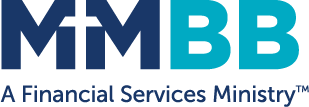MMBB COVID-19 BENEFITS
AVAILABLE TO ABCUSA CLERGY

THE MINISTERS AND MISSIONARIES BENEFIT BOARD
RESPONSES TO QUESTIONS FROM NEC AND REMC OFFICERS MEETING ON MARCH 24, 2020
NON-CONTRACTUAL BENEFITS AVAILABLE TO ABCUSA CLERGY
MMBB Premiums
Ordained pastoral leaders, whose employers who cannot afford to continue their premiums during this time, will be placed on temporary continuance of $10/month premium for a period of up to 2 years. The key objective is to keep intact important life insurance and disability protections for members of the Comprehensive Plan.
This involves a reduction in compensation to fix the premium to the lowest level while maintaining important life and disability benefits for the member. This could be extended to those pastoral leaders who are forced to leave their churches or whose church is forced to close.
During the period of continuance, MMBB would pay the $10/month premium on behalf of the employer from its Non-Contractual Benefits Fund.
Emergency Financial Assistance
Given the extraordinary and unique nature in which financial assistance requests are coming to MMBB considering the COVID-19 pandemic, it is important for MMBB to develop an equitable approach to administering financial assistance to those in need. In addition, it is also equally important to determine the magnitude of such requests.
Emergency financial assistance is meant to relieve personal, short-term financial crises and to augment continued financial solvency of pastoral leaders in the event of loss of employment or extended financial difficulty experienced by the church or employer.
This policy is developed with the understanding that recipients of financial assistance would engage in financial wellness counseling through MMBB. This policy continues with the current guidelines for Emergency Assistance. While all members are eligible for assistance, focus would be placed on assisting those in pastoral leadership and those who are most likely to suffer income loss during this crisis. Requests would be made on a one-time basis rather than spread over a period for expedition and ease of administration.Using current thresholds, assistance would be limited to $3,500 (or $4,000 in extreme circumstances) per request. Due to the limited non-contractual budget, the limits are set based on the reality that the fund must be shared amongst a variety of needs.
Member confidentiality will be maintained in the administration of benefits.
PORTIONS OF THE CARES ACT PERTINENT TO THE CLERGY COMMUNITY AND THEIR CHURCHES
The Coronavirus Aid, Relief, and Economic Security Act (CARES Act) is a $2 trillion legislative package that was enacted on Friday, March 27, 2020. Below are provisions that could assist the clergy community:
Subtitle B – Rebates and Other Individual Provisions
Section 2201. 2020 Recovery Rebates for Individuals
All U.S. residents with adjusted gross income up to $75,000 ($150,000 married), who are not a dependent of another taxpayer and have a work eligible social security number, are eligible for the full $1,200 ($2,400 married) rebate. In addition, they are eligible for an additional $500 per qualifying child under the age of 17. This is true even for those who have no income, as well asthose whose income comes entirely from non-taxable means-tested benefit programs, such as SSI benefits.
For most Americans, no action on their part will be required in order to receive a rebate check as IRS will use a taxpayer’s 2019 tax return if filed, or in the alternative their 2018 return. This includes many low-income individuals who file a tax return in order to take advantage of the refundable Earned Income Tax Credit and Child Tax Credit. The rebate amount is reduced by $5 for each $100 that a taxpayer’s income exceeds the phase-out threshold. The amount is completely phased-out for single filers with incomes exceeding $99,000, $146,500 for head of household filers with one child, and $198,000 for joint filers with no children.
Section 2202. Special rules for use of retirement funds
Consistent with previous disaster-related relief, the provision waives the 10-percent early withdrawal penalty for distributions up to $100,000 from qualified retirement accounts for coronavirus-related purposes made on or after January 1, 2020. In addition, income attributable to such distributions would be subject to tax over three years, and the taxpayer may recontribute the funds to an eligible retirement plan within three years without regard to that year’s cap on contributions. Further, the provision provides flexibility for loans from certain retirement plans for coronavirus-related relief.
Please note that while the 10-percent early withdrawal penalty for distributions up to$100,000 from qualified retirement accounts is waived, it does not waive income tax on such distributions.
A coronavirus-related distribution is one made to an individual: (1) who is diagnosed with COVID-19, (2) whose spouse or dependent is diagnosed with COVID-19, or (3) who experiences adverse financial consequences as a result of being quarantined, furloughed, laid off, having work hours reduced, being unable to work due to lack of child care due to COVID-19, closing or reducing hours of a business owned or operated by the individual due to COVID-19, or other factors as determined by the Treasury Secretary.
Section 2203. Temporary waiver of required minimum distribution rules for certain retirement plans and accounts
The provision waives the required minimum distribution rules for certain defined contribution plans and IRAs for calendar year 2020. This provision provides relief to individuals who would otherwise be required to withdraw funds from such retirement accounts during the economic slowdown due to COVID-19.
Section 2204. Allowance of partial above the line deduction for charitable contributions
The provision encourages Americans to contribute to churches and charitable organizations in 2020 by permitting them to deduct up to $300 of cash contributions. This provision is for taxpayers who do not itemize, but instead take the standard deduction. This is applicable for tax years beginning after 2019 and does not sunset after 2020.
For more information about these matters,
contact the MMBB Customer Care staff at 1-800-986-6222
DOWNLOADABLE DOCUMENT:
MMBB COVID-19 BENEFITS.pdf